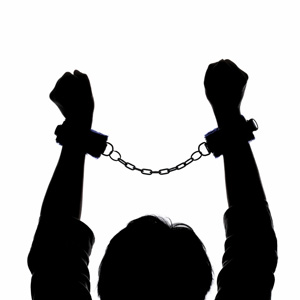In New York, a 7-year-old is arrested for rape; should the age for juvenile prosecutions be raised?

Image from Shutterstock.
Children in New York can be charged as juvenile delinquents beginning at age 7, which explains why a boy of that age could be charged with rape in March in upstate Brasher Falls, New York.
Because arrest records of children aren’t available to the public, little is known about the child’s arrest, the New York Times reports.
But it has brought criticism and a new focus on a pending New York bill that would raise the minimum age for charging a child as a juvenile delinquent to age 12, except in homicides. Children younger than age 12 would be diverted to social service agencies.
One person backing a higher minimum for juvenile delinquency prosecutions is Dawne Mitchell, who leads the Legal Aid Society’s juvenile rights practice.
“What we know now is that the science doesn’t support prosecution of second graders,” she told the New York Times.
Mitchell cited research showing that young children are unaware of the consequences of their actions and are psychologically traumatized by being handcuffed and prosecuted.
According to legal aid data, juvenile arrests disproportionately affect minorities. Fifty-seven percent of children in New York City are Black or Hispanic, but they make up more than 90% of those arrested from ages to 7 to 11.
In more than half the states, there is no minimum age to prosecute a child as a juvenile delinquent, according to the New York Times. In states with a minimum age, North Carolina sets the bar the lowest, with a minimum age of 6.
Some states have raised the minimum age to prosecute children as juveniles. The age is 12 in Massachusetts, California and Utah. In Mississippi, the minimum age to commit a juvenile to a facility is 12. More than a half dozen other states are also considering legislation that raises the minimum age.
The movement to raise the age for juvenile delinquency prosecutions follows calls to raise the age at which juveniles can be prosecuted as adults. In New York, most teenagers can’t be charged as adults for misdemeanors and most felonies until they are 18. Previously, the age was 16.
Write a letter to the editor, share a story tip or update, or report an error.


